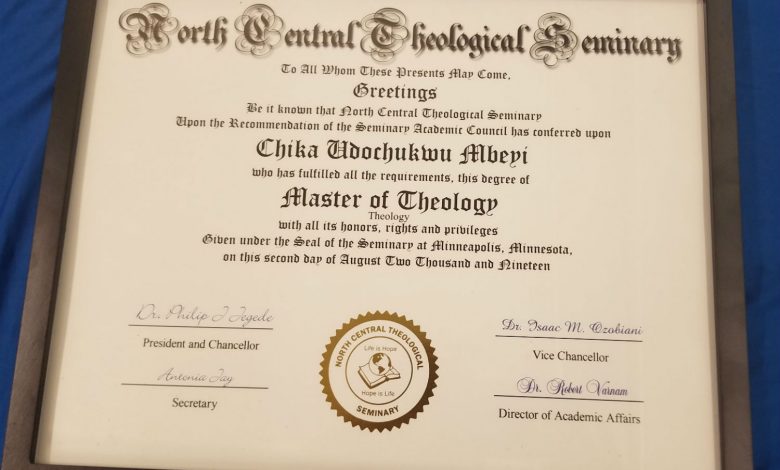The Benefits Of A Seminary Degree

If you’re interested in furthering your education and pursuing a career in ministry, you may be interested in getting a seminary degree. Several different options are available to you, and a seminary degree will allow you to earn the highest-level qualification possible. Among these are the Master of Divinity and Doctor of Philosophy degrees. These degrees provide you with the knowledge and the skills necessary to serve God and others.
Although seminaries typically refer to graduate schools, there are also undergraduate programs available. Some of these programs are open to people with no or minimal religious background. The undergraduate program is the prerequisite for enrolling in a graduate program, but dual degree programs allow you to earn both degrees quicker. For example, if you are interested in studying acting or writing, seminary programs will offer you both. You may also be able to complete your master’s program in fewer years than you’d expect.
To earn a seminary degree, you should first decide which school is right for you. Then, you can consult church staff members for recommendations. Some churches have scholarship programs and ad hoc programs to help you pay for your education. In addition, if you’re currently working for a church, you may be able to get course credit for your previous experience, which can drastically cut the time and cost involved in your degree. Regardless of the program you choose, you should always check the accreditation of your seminary degree to ensure that the school is legitimate. The Higher Learning Commission is an excellent example of a credible agency for this purpose. The commission uses peer reviewers to grant membership to postsecondary schools, another benefit of a seminary degree.
You can also earn a Master of Arts in Theological Studies, a degree designed for those with a bachelor’s degree in ministry. This program will teach you about Scripture studies and theological studies while gaining practical ministry experience. The coursework is taught through interactive live-streaming technology so that you can conveniently blend your classes and assignments into your workweek. In addition, the curriculum includes a wide variety of electives in applied theology and biblical studies, which will give you a broad knowledge of the subject.
The graduate program also includes a doctorate in Missiology. This program culminates in a field research project that examines a missiological issue in a mission context. Lastly, you can get a Ph.D. in Education, a 60-hour program that will equip you with teaching, service, and scholarship skills. It is based on a signature pedagogy. The program is designed to foster education, scholarship, and problem-solving skills.
A Master of Arts in Biblical Studies is an excellent choice for those interested in furthering their knowledge of the Bible and Christian theology. This program is focused on the study of Scripture in context and emphasizes critical analysis of its history, language, and interpretation. However, it is not exclusively geared toward students seeking to pursue a Ph.D. in biblical studies and requires an MDiv or equivalent degree. Additionally, some schools require that students submit a research paper as part of their application package.
A Master of Arts in Theological Studies is an excellent choice for students interested in ministry practice. This program integrates biblical and theological study with leadership studies. This degree prepares you for various ministry settings, including ordained parish ministry, non-profit leadership, and lay leadership. Whether you plan to pursue a doctorate or begin a career in teaching, a seminary degree will prepare you to serve the people of your community in a meaningful way.
Most seminaries offer the Master of Divinity degree as a joint foundational theology degree. It is often combined with a Master of Arts degree, and some seminaries offer dual MDiv/MA programs. Another popular degree at most seminaries is the Master of Theological Studies (MTS), a specialized degree in theology. Finally, there are also Doctor of Philosophy or Doctor of Ministry degrees available. These programs provide opportunities for advancement in ministry, including doctoral study.
A doctorate in divinity or theology is also available. While a seminary degree can be a valuable credential, it’s not for everyone. Some people choose to focus on pastoral ministry, which means ministering to people outside the church. Whether you’re interested in working in a traditional church, a seminary degree will give you the credibility and respect necessary to advance your career. So what are you waiting for? Get started today!





